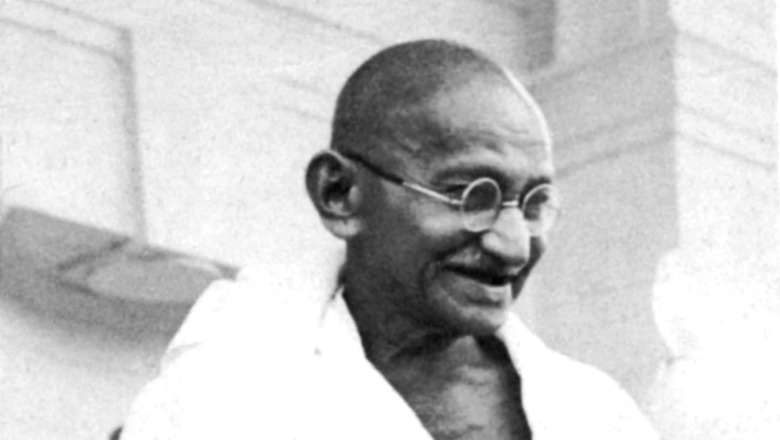
views
It has taken humans hundreds of years and the contributions of several remarkable leaders to understand the significance and impact of non-violence. From Mahatma Gandhi to Nelson Mandela, non-violence formed the bedrock of the policies of several influential leaders to fight oppression. The International Day for Peace is observed on September 21 every year to strengthen our ideals for peace and ensure a period of non-violence and ceasefire. This year, on this special day, we tell you about five world leaders who showed humanity the light of peace in the darkness of violence.
Mahatma Gandhi
Mahatma, which means a greater soul, was not Mohandas Gandhi’s original name but a title he was given because of the consciousness he demonstrated by the extraordinary practice of non-violence in his personal and political life. Gandhi’s non-violent civil disobedience and Satyagraha movements are seen as the milestones in India’s struggle for freedom from the British, and have set examples for non-violent resistance that has inspired many movements across the world.
Martin Luther King Jr
Inspired by his Christian beliefs and the nonviolent activism of Mahatma Gandhi, King played a key role in the American civil rights movement and advocated peaceful solutions to many biggest problems in society. His peaceful demonstrations made racism in America visible worldwide. In 1964, he was awarded the Nobel Peace Prize.
Leymah Gbowee
Leader of the women’s nonviolent peace movement, Gbowee helped end the 14-year-long civil war in Liberia. Gbowee and her movement brought a period of peace in the West African country and fought for women’s rights using nonviolent campaigns. She was also awarded the 2011 Nobel Peace Prize with her collaborator Ellen Johnson Sirleaf.
Nelson Mandela
Fighting apartheid in South Africa, Nelson Mandela spent 27 years of his life in prison. When he was released, his efforts led to a multiracial election in South Africa and he was elected as President. Emphasising forgiveness in personal life, Mandela saw non-violence as the most pragmatic form of resistance.
Mairead Maguire
A proponent of the belief that “violence is a disease that humans develop but are not born with,” Maguire is a peace activist who founded Community for Peace People, an organisation that helped resolve the conflict in Northern Ireland. Recognised as a leader of peace, Maguire was awarded the 1976 Nobel Peace Prize along with her collaborator Elizabeth Williams.
Read all the Latest News , Breaking News and Ukraine-Russia War Live Updates here.




















Comments
0 comment